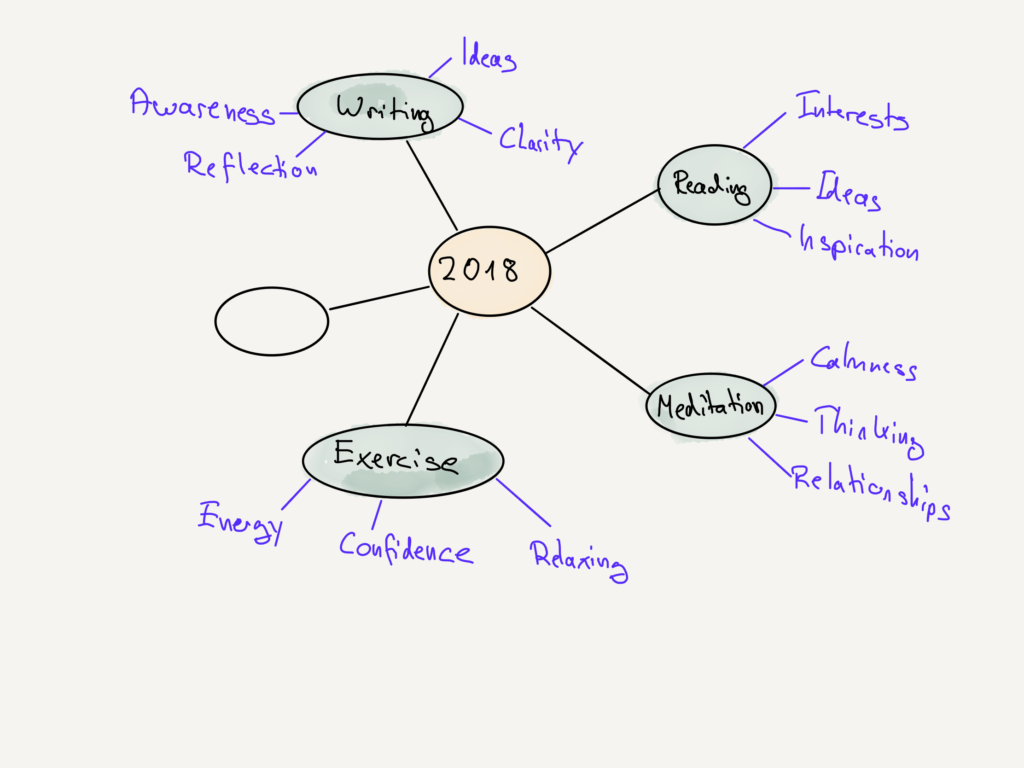Mastering the Stock Market.
Blogs
Overall, developing good trading habits can help traders achieve greater success in the stock market by reducing the impact of emotions…[..]
:: The stock market, also known as the equity market, is a financial marketplace where stocks or shares of publicly traded companies are bought and sold. Companies issue stocks to raise capital for their operations and expansion, and investors purchase these stocks to own a part of the company and benefit from its growth and profitability. The stock market provides a platform for companies to raise capital, and for investors to earn returns on their investments through dividends and capital gains. The stock market is an important aspect of the global economy and plays a significant role in facilitating the flow of capital and allocation of resources.
Developing positive trading habits is crucial for achieving success in the stock market. The stock market can be unpredictable and volatile, and developing good trading habits can help traders navigate these ups and downs more effectively. Here are some reasons why developing trading habits is important for success in the stock market:
- Consistency: Trading habits help traders develop a consistent approach to trading. Consistency is key to success in the stock market, as it allows traders to minimize the impact of emotions and make rational, informed decisions.
- Risk management: Developing good trading habits can help traders manage risk effectively. This includes setting stop-loss orders, managing position sizes, and avoiding overtrading.
- Discipline: Successful traders are disciplined in their approach to trading, and developing good trading habits can help traders cultivate this discipline. This includes following a trading plan, sticking to predetermined risk management rules, and avoiding impulsive trades.
- Learning and improvement: Good trading habits help traders learn from their mistakes and improve their performance over time. This includes reviewing trades, analyzing market data, and seeking feedback from other traders.
Overall, developing good trading habits can help traders achieve greater success in the stock market by reducing the impact of emotions, managing risk effectively, and cultivating a disciplined approach to trading.

This article will explore the importance of developing trading habits for success in the stock market. The article will begin with an introduction to the stock market and an explanation of why developing trading habits is essential for success in this market. The article will then dive into the importance of trading habits, including their impact on trading performance and emotions.
The article will then provide an overview of the habits of successful traders, including research and analysis habits, risk management habits, discipline and patience habits, and learning and improvement habits. Following this, the article will discuss common bad trading habits to avoid, such as impulsive trading, overconfidence, and lack of discipline.
Next, part will provide practical tips for developing positive trading habits, such as setting goals and tracking progress, developing a daily trading routine, practicing mindful trading, and learning from mistakes. The article will conclude with a summary of the importance of trading habits in the stock market and a call to action for traders to develop positive trading habits for long-term success.
Why Trading Habits Matter in the Stock Market?
Trading habits matter in the stock market because they can significantly impact a trader’s performance, decision-making, and long-term success. The stock market is a complex and volatile environment, and developing positive trading habits can help traders navigate this environment more effectively.
Here are some reasons why trading habits matter in the stock market:
- Emotions: Trading habits can help traders manage their emotions when making trading decisions. Emotions can lead to irrational decisions and impulsive behavior, which can result in significant losses. Developing positive trading habits can help traders manage their emotions and make more rational decisions.
- Risk Management: Good trading habits can help traders manage risk more effectively. Risk management is crucial in the stock market, as it can help traders protect their investments and minimize losses. Developing positive trading habits, such as setting stop-loss orders and managing position sizes, can help traders manage risk more effectively.
- Discipline: Developing positive trading habits can help traders maintain discipline in their approach to trading. Consistency and discipline are key to success in the stock market, as they can help traders avoid impulsive decisions and stick to their trading plan.
- Learning and Improvement: Trading habits can help traders learn from their mistakes and improve their performance over time. By reviewing trades, analyzing market data, and seeking feedback from other traders, traders can develop positive habits that lead to greater success in the stock market.

Overall, trading habits matter in the stock market because they can help traders manage their emotions, manage risk effectively, maintain discipline, and improve their performance over time. By developing positive trading habits, traders can increase their chances of long-term success in the stock market.
The Habits of Successful Traders
Successful traders in the stock market share common habits that contribute to their success. Here are some of the key habits of successful traders:
- Planning: Successful traders have a plan and stick to it. They set realistic goals and develop a trading plan that outlines their entry and exit strategies, position sizing, risk management, and overall approach to trading.
- Discipline: Successful traders are disciplined in their approach to trading. They follow their trading plan consistently and avoid making impulsive decisions based on emotions or market hype.
- Patience: Successful traders understand that trading is a long-term game and have the patience to wait for the right opportunities. They don’t force trades or chase after the latest market trends but instead wait for the right set-up before entering a trade.
- Risk Management: Successful traders prioritize risk management and take steps to protect their investments. They use stop-loss orders, manage position sizes, and avoid overtrading to minimize risk and protect their capital.
- Continuous Learning: Successful traders never stop learning and are always seeking ways to improve their skills and knowledge. They read trading books, attend webinars, seek feedback from other traders, and analyze market data to identify patterns and opportunities.
- Adaptability: Successful traders are adaptable and can adjust their strategies as market conditions change. They have a flexible approach to trading and are willing to modify their plan if it’s not working.
- Emotional Control: Successful traders have the emotional control to manage their emotions when making trading decisions. They don’t let fear, greed, or other emotions cloud their judgment and instead make rational decisions based on objective information.
Successful traders in the stock market share common habits that contribute to their success. They plan, maintain discipline, have patience, prioritize risk management, continuously learn, are adaptable, and have emotional control. By developing these habits, traders can increase their chances of success in the stock market.

Common Bad Trading Habits to Avoid
In addition to developing positive trading habits, it’s important for traders to avoid common bad habits that can negatively impact their performance and lead to losses in the stock market. Here are some common bad trading habits that traders should avoid:
- Impulsive Trading: Impulsive trading is a common bad habit that can lead to significant losses. Traders who make trades based on emotions or market hype rather than a solid trading plan are more likely to make mistakes and suffer losses.
- Overtrading: Overtrading is another bad habit that traders should avoid. Traders who make too many trades or take on too much risk are more likely to experience losses and suffer from burnout.
- Chasing After Losses: Traders who chase after losses by increasing their position size or taking on more risk in an attempt to recoup their losses are likely to suffer even greater losses. It’s important to stick to a trading plan and avoid chasing after losses.
- Lack of Patience: Traders who lack patience and jump into trades too quickly are more likely to make mistakes and suffer losses. It’s important to wait for the right set-up and avoid forcing trades.
- Ignoring Risk Management: Traders who ignore risk management and fail to use stop-loss orders, manage position sizes, or diversify their portfolio are more likely to suffer significant losses in the stock market.
- Failure to Learn: Traders who fail to learn from their mistakes and continually improve their skills and knowledge are more likely to struggle in the stock market. It’s important to analyze trades, seek feedback from other traders, and continually learn about the market.
- Lack of Discipline: Traders who lack discipline and fail to stick to their trading plan or make impulsive decisions based on emotions are more likely to suffer losses and struggle in the stock market.
Traders should avoid common bad trading habits, such as impulsive trading, overtrading, chasing after losses, lack of patience, ignoring risk management, failure to learn, and lack of discipline. By avoiding these habits, traders can improve their performance, manage risk effectively, and increase their chances of success in the stock market.
How to Develop Positive Trading Habits
Developing positive trading habits is essential for success in the stock market. Here are some tips for developing positive trading habits:
- Set Realistic Goals: Set realistic goals that align with your trading style, experience, and risk tolerance. This will help you stay focused and motivated.
- Create a Trading Plan: Develop a trading plan that outlines your entry and exit strategies, position sizing, risk management, and overall approach to trading. This will help you stay disciplined and avoid impulsive decisions.
- Stick to Your Trading Plan: Once you have developed a trading plan, it’s important to stick to it. Avoid making impulsive decisions based on emotions or market hype.
- Practice Patience: The stock market can be unpredictable, so it’s important to have patience and wait for the right opportunities to arise. Avoid forcing trades or chasing after the latest market trends.
- Prioritize Risk Management: Make risk management a priority by using stop-loss orders, managing position sizes, and diversifying your portfolio. This will help you protect your capital and minimize losses.
- Continuously Learn: Stay up-to-date with the latest market trends and developments by reading trading books, attending webinars, seeking feedback from other traders, and analyzing market data.
- Evaluate Your Trades: Evaluate your trades and learn from your mistakes. Identify areas where you can improve and make changes to your trading plan accordingly.
- Practice Emotional Control: Manage your emotions when making trading decisions. Avoid making decisions based on fear, greed, or other emotions and instead make rational decisions based on objective information.
developing positive trading habits takes time and effort, but it’s essential for success in the stock market. Set realistic goals, create a trading plan, practice patience, prioritize risk management, continuously learn, evaluate your trades, and practice emotional control. By developing these habits, you can increase your chances of success in the stock market.

In conclusion, developing positive trading habits is crucial for success in the stock market. Good trading habits, such as setting realistic goals, creating a trading plan, practicing patience, prioritizing risk management, continuously learning, evaluating trades, and practicing emotional control, can help traders minimize losses, protect their capital, and increase their chances of success.
On the other hand, bad trading habits such as impulsive trading, overtrading, chasing after losses, lack of patience, ignoring risk management, failure to learn, and lack of discipline can lead to significant losses and hinder a trader’s performance.
By adopting positive trading habits and avoiding bad ones, traders can improve their performance, manage risk effectively, and achieve long-term success in the stock market. Remember, developing good habits takes time and effort, but the rewards can be significant. With dedication and discipline, any trader can develop positive trading habits and become a successful investor in the stock market.
